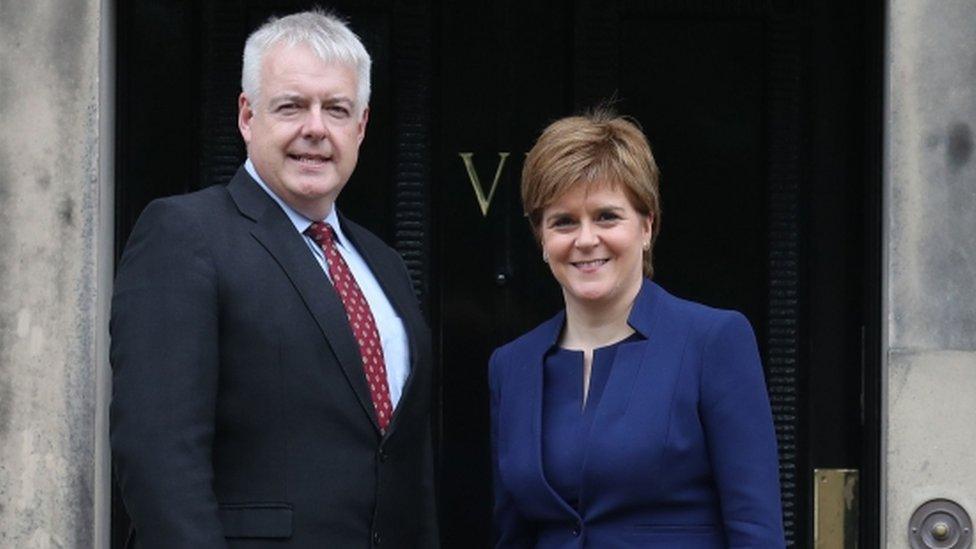Still no Scots-UK deal after Brexit powers talks
- Published
- comments
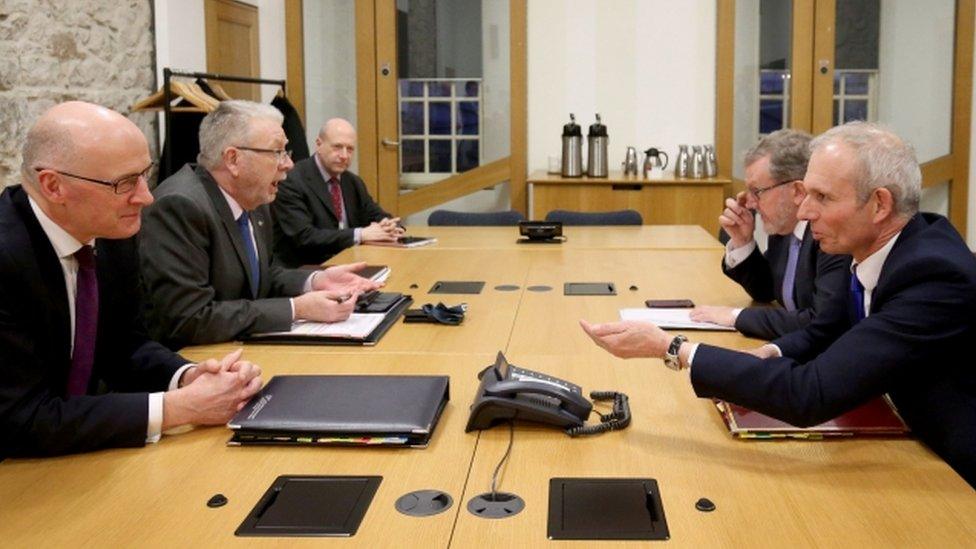
Talks between Scottish and UK ministers have so far failed to yield an agreement
Talks between Scottish and UK ministers have once again ended without a deal on the use of devolved powers post-Brexit.
The two governments are at odds over how powers currently exercised from Brussels will be built into UK-wide frameworks after the UK leaves the EU.
Welsh ministers have agreed a deal with UK counterparts, but no settlement with Scottish ministers has yet been found.
Both sides say they can still come to an agreement, but they have only a few weeks left to do so.
An agreed text issued following the meeting said ministers had "noted the need for continued engagement", with further talks to be held in a bid to break the deadlock.
The dispute centres on the EU Withdrawal Bill, the primary piece of Brexit legislation at Westminster, and what it says about devolved powers.
All sides agree that some powers which are currently kept in line with EU-wide sets of regulations should go into UK-wide frameworks after Brexit. However, they differ on how these frameworks should be set up and run, with UK ministers wanting the final say if talks become deadlocked.
Scottish ministers say they will not put forward the Withdrawal Bill for a consent vote at Holyrood until this is settled. The final point at which this can happen is before the bill has its final reading in the House of Lords, currently expected to be on 16 May.
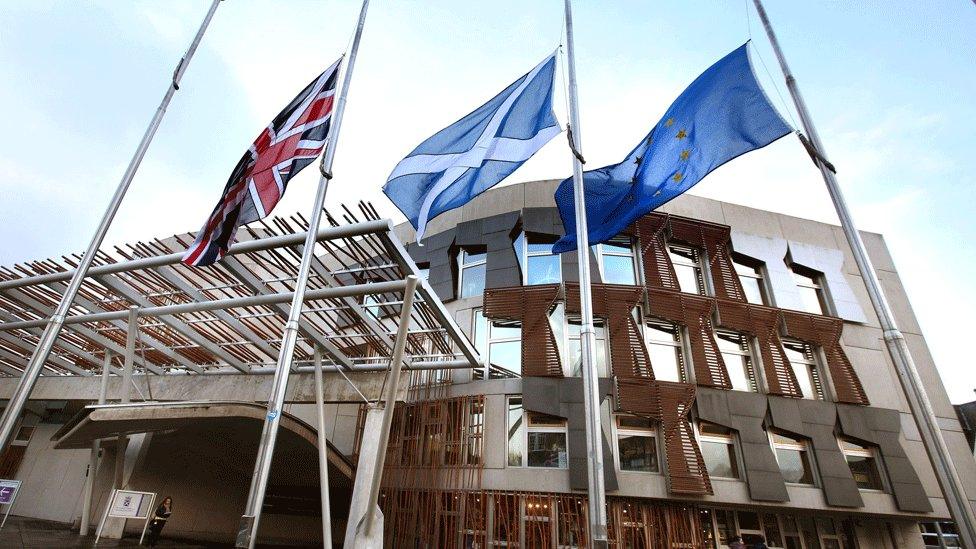
The row centres on devolved powers going from EU-wide frameworks of regulations into UK-wide ones
Prior to the joint ministerial council meeting in London, Cabinet Office minister David Lidington said work must continue to ensure all parts of the UK were ready for Brexit.
He said "significant" changes had been made to the bill to bring it to the point where a deal was done with the Welsh government,
He said: "While I would urge the Scottish government to reconsider their decision on the Withdrawal Bill, it is equally important that all sides continue to work together on the preparations for Brexit irrespective of the areas where we may not be able to agree.
"Regardless of what course the Scottish government chooses, there is an important programme of work requiring our immediate attention on UK frameworks and the wider EU negotiations where we must continue to work together to make sure that all parts of the UK are ready for when we leave the EU."
'Bizarre proposal'
Scottish Brexit Minister Mike Russell said the deal currently on the table would "tie the Scottish parliament's hands".
He said the UK offer was a "bizarre proposal" which "would allow them to treat a straight refusal of the Scottish parliament to consent to changes in devolved powers as a green light to go ahead and change them anyway".
He said: "This would affect our fishing industry, our farmers, our environment, regulations around the safety of the food we grow and buy in the shops and many other devolved powers. And all this as a consequence of a Brexit that the overwhelming majority of people in Scotland did not vote for."
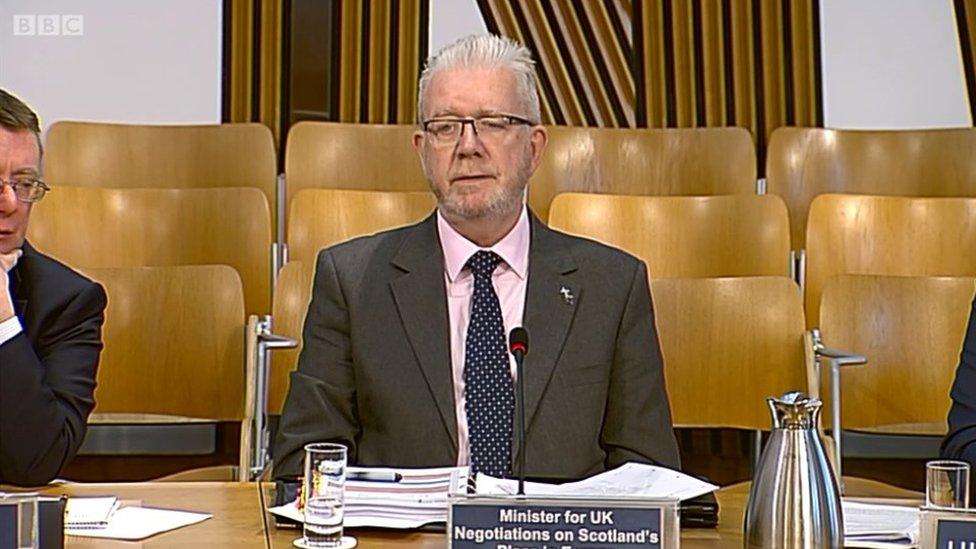
Mr Russell had earlier told MSPs that the talks were not "the last throw of the dice"
The MSP said an agreement could still be reached, by either scrapping the section of the bill dealing with the devolved administrations completely or by agreeing changes to ensure Holyrood's consent is given before the powers are used.
He told MSPs earlier on Wednesday that he expects talks to go "down to the wire".
The Scottish government has pointed to amendments tabled in the House of Lords suggesting that the frameworks are set up and run via Orders in Council, a form of procedure which requires the explicit consent of the devolved parliaments.
Mr Russell told MSPs that this would "do the job" for the Scottish government, but it is understood UK ministers would not do a deal on this basis.
Lord Keen, the advocate general for Scotland, has previously argued that having to seek the explicit consent of the devolved parliaments would effectively give them a "veto" over the running of UK-wide frameworks.
Scottish Conservative MSPs have also argued that the current deal is based upon the current devolution settlement, which leaves room for Westminster to overrule Holyrood in extreme situations.
However Scottish Labour and the Liberal Democrats have said that they would not back the deal currently on offer from UK minsters, arguing there are "knots in the bill that need to be untied".
Mr Russell also told a committee of MPs on Monday of a "substantial lack of trust on both sides" of the row.
- Published30 April 2018
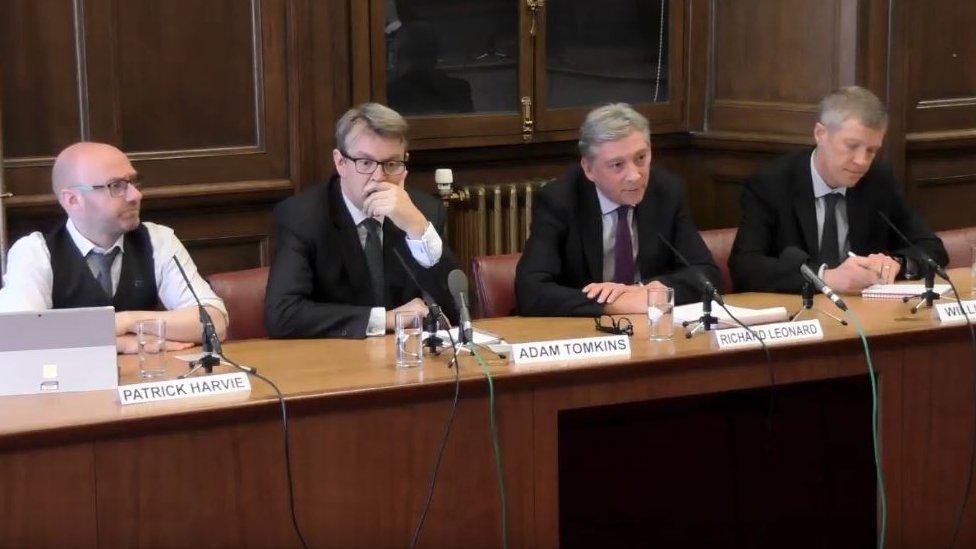
- Published29 April 2018
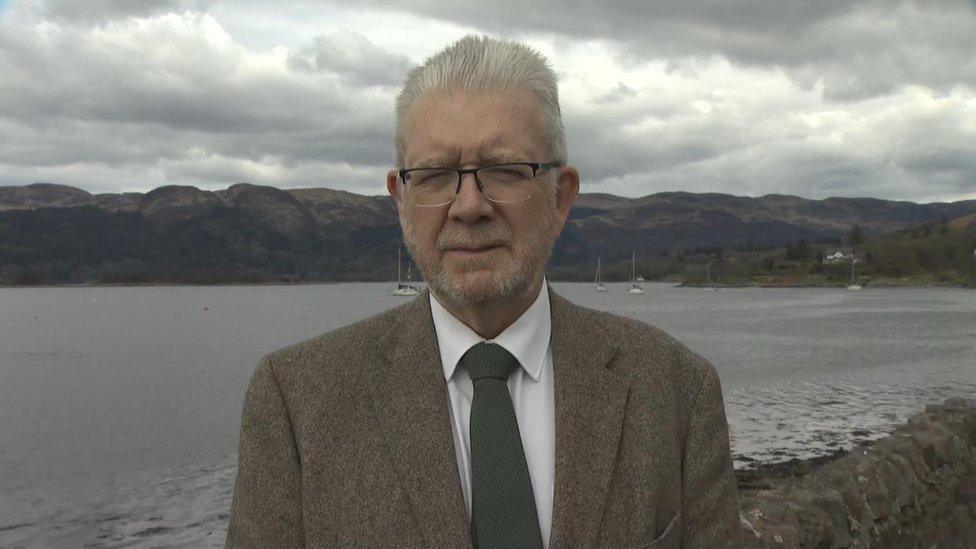
- Published24 April 2018
